Cressman lecturers
 |
2024–25 Allison Pugh, Professor of Sociology, Johns Hopkins University. “Re-imagining the Other/Ourselves: Finding the Human in the Age of AI.” Part of the Re-imagine series. |
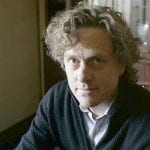 |
2023–24 Christopher Newfield, Director of Research at the Independent Social Research Foundation in London. “Jobs and Universities: A Tale of Two Futures.” Part of the Humanities Matter(s) series. |
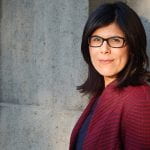 |
2022–23 Natalia Molina, AmericanStudies and Ethnicity, University of Southern California. “A Place in the Narrative: Telling Underdocumented Stories.” Part of the Belonging series. |
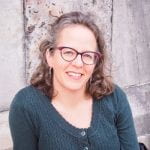 |
2021-22 Kimberly Nicholas, Sustainability Science, Lund University, Sweden. “Facing Climate Change with Facts, Feelings, and Action.” Part of the Imagining Futures series. |
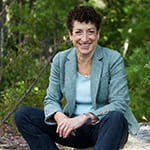 |
2020-21 Naomi Oreskes, Henry Charles Lea Professor of the History of Science, Harvard University. “Can Science be Saved?” Part of the Climate Justice series. |
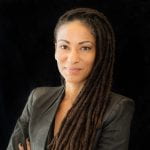 |
2019-20 Ruha Benjamin, African American Studies, Princeton University; author of Race After Technology (2019). “Beyond Buzzwords: Reimagining the Default Settings of Technology and Society.” Part of the Convergence series. |
| 2018-19 There was no Cressman lecture | |
 |
2017–18 Maria Hinojosa, host of NPR’s Latino USA. “From the Front Lines: A Conversation with Maria Hinojosa.” Part of the “We the People” series. |
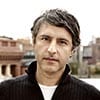 |
2016–17 Reza Aslan,writer, commentator, professor, producer, and scholar of religions; author of Zealot: The Life and Times of Jesus of Nazareth. “An Evening with Reza Aslan: Religion, Identity, and the Future of America.” Part of the Humanities series. |
 |
2015-16 Naomi Klein, author, This Changes Everything: Capitalism vs. the Climate. “This Changes Everything: Capitalism vs. the Climate.” Part of the Justice series. |
 |
2014–15 Janna Levin, astrophysicist and writer. She is the author of How the Universe Got Its Spots and a novel, A Madman Dreams of Turing Machines. “From the Big Bang to Black Holes: Time, the Universe, and Everything.” Part of the connection series. |
 |
2013-14 Jeffrey Duncan-Andrade, Associate Professor of Raza Studies and Education at San Francisco State University and Director of the Educational Equity Initiative at the Institute for Sustainable Economic, Educational, and Environmental Design (ISEEED). He also teaches English at Freemont High School in East Oakland where he directs the East Oakland Step to College Program. “Note to Educators: Hope Required When Growing Roses in Concrete.” Part of the vulnerable series. |
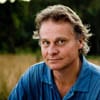 |
2012-13 Wade Davis, National Geographic Explorer-in-Residence and anthropologist; author of Light at the Edge of the World: A Journey Through the Realm of Vanishing Cultures (2009) and Into the Silence: The Great War, Mallory and the Conquest of Everest (2011). “The Wayfinders: Why Ancient Wisdom Matters in a Modern World.” Part of the being human | human beingseries. |
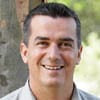 |
2011-12 Paul Gilding, author of The Great Disruption: Why the Climate Crisis Will Bring On the End of Shopping and the Birth of a New World. “The Mother of All Conflicts—Infinite Economic Growth vs. a Finite Planet.” Part of the Conflict series. |
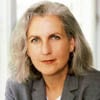 |
2010-11 Terry Tempest Williams, conservationist, advocate for free speech, and author of Refuge. “The Sustaining Grace of Witness.” Part of the Sustenance series. |
 |
2009-10 Frances Moore Lappé, democracy advocate and world food and hunger expert, author of Diet for a Small Planet. “Getting a Grip—Gaining Clarity, Creativity and Courage for the World We Really Want” Part of the Year of the Book series. |
 |
2008-09 Mary Evelyn Tucker, Yale University Divinity School, School of Forestry and Environmental Studies, and Department of Religious Studies. “The Emerging Alliance of Religion and Ecology“ |
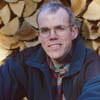 |
2007-08 Bill McKibben, environmentalist and writer. “Building the Climate Movement” |
 |
2005-06 Peter Brown, Professor of Palaeoanthropology, School of Human and Environmental Studies, University of New England, Australia. “A Revolution in Evolution” |
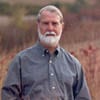 |
2004-05 Gary E. Moulton, Thomas C. Sorensen Professor of American History, University of Nebraska, Lincoln. “Lewis and Clark’s New Look.” |
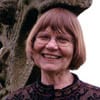 |
2003-04 Ellen Dissanayake, independent scholar and writer. “The ‘Deep Structure’ of the Arts” |
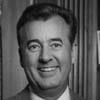 |
2002-03 Stephen Dow Beckham, Pamplin Professor of History, Lewis & Clark College. “The Lewis and Clark Expedition: America’s Commitment to the Enlightenment” |
 |
2001-02 Sarah Blaffer Hrdy, primatologist and award-winning author. “Maternal Love and Ambivalence in the Pleistocene, the 18th Century, and Right Now” |
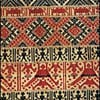 |
2000-01 Diana K. Myers. “The Thunder Dragon Kingdom in the Twenty-First Century” |
 |
1999-00 Tsianina Lomawaima, anthropology and Native American Studies, University of Arizona. “They Sacrificed for Our Survival: The Indian Boarding School Experience” |
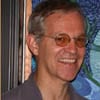 |
1998-99 Henry J. Drewal, Evjue-Bascom Professor of African and African Diaspora Art, University of Wisconsin, Madison. “Celebrating Ancestors, Shaping Community: Yoruba Egungun Masquerades in Africa and Brazil.” |
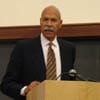 |
1997-98 Randall Robinson, human rights advocate, Founding President of Trans-Africa, Inc. and Trans-Africa Forum. “Defending the Spirit.” |
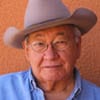 |
1996-97 N. Scott Momaday, recipient, Pulitzer Prize, and Regents Professor of English, University of Arizona. “A Divine Blindness: Storytelling, Oral Tradition, and Jorge Luis Borges.” |